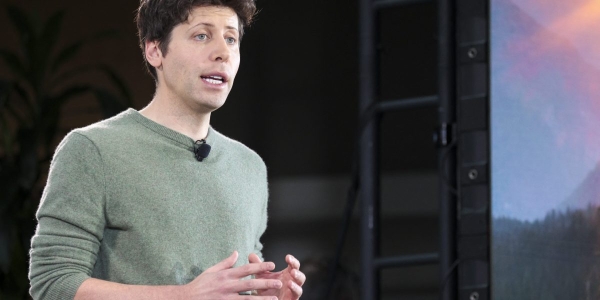
OpenAI CEO Sam Altman isn’t averse to change—he helped kickstart the current A.I. race with chatbot ChatGPT, after all, threatening to upend multiple industries—but he still thinks startups are most effective when employees work together in an office.
The idea of fully remote work becoming the norm has come and gone, he said this week at a fireside chat in San Francisco organized by the fintech company Stripe.
“I think definitely one of the tech industry’s worst mistakes in a long time was that everybody could go full remote forever, and startups didn’t need to be together,” he told attendees.
“There was going to be no loss of creativity. I would say that the experiment on that is over, and the technology is not yet good enough that people can be full remote forever, particularly on startups.”
He isn’t alone in his assessment. Many CEOs have been demanding that remote employees spend more time in the office, among them Bob Iger at Disney, Howard Schultz at Starbucks, and Robert Thomson at News Corp. During the pandemic, remote work or a hybrid work schedule was the only option for many office workers—and many grew to prefer it to being in the office every workday.
“I do not believe in remote work for startups,” Keith Rabois, a general partner at venture capital firm Founders Fund, told The Logan Bartlett Show last week, adding that neither he nor his firm would invest in a venture based on it. Younger workers, he noted, “learn by osmosis” in a way that requires in-person interaction, and supervisors discover hidden talent by watching them.
Meanwhile at the struggling Uber rival Lyft, new CEO David Risher ordered remote workers back to the office last week one day after laying off more than 1,000 employees, or about 26% of the workforce. Employees will now have to come in Mondays, Wednesdays, and Thursdays, with Tuesdays recommended.
Many remote workers contend that working from home is just fine, and they are not eager to return to pre-pandemic office and commuting routines. In a Pew Research survey released last month, 56% of respondents said working from home helps them get work done and meet deadlines, while 37% said it neither helps nor hurts.
But at least one CEO, James Clarke of digital marketing firm Clearlink, worries employees might be secretly working multiple jobs while working remotely. He also worries some might be freeing up time by using A.I. tools like OpenAI’s ChatGPT and GPT-4—time that his company isn’t utilizing.
Altman said he would advise startups against remote work because it can create confusion. He noted that “the more unclear and early the product is, the more in-person time the team needs to grind together.”
He knows a thing or two about that. As he and fellow OpenAI cofounder Greg Brockman told the Possible podcast this week, they spent months trying to figure out what exactly their A.I. chatbots should be, ultimately deciding against specializing in one field, such as law or medicine, and going instead for the broadest possible audience—and letting that audience decide for itself how to use the technology.
That strategy has proven so successful that OpenAI is now valued at nearly $30 billion despite being founded just seven years ago. And CEOs everywhere are looking to capitalize on the productivity gains made possible by tools like ChatGPT and GPT-4.
IBM CEO Arvind Krishna said this week his company will pause hiring for roles it thinks could be replaced with artificial intelligence in the coming years. He also said while you might be just as productive working from home, “your career does suffer” if you work remotely.







